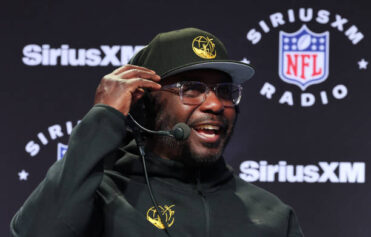When people find out my family lives in Ireland, there are usually a few standard conversation topics: the scenery, accents and drinking, all of which contribute to some of the most welcoming people on the planet. Ireland is always cheery, happy, smiling, pretty and drinking.
Except when it's not.
See, my mum's family is in Northern Ireland, where riots, bombings, shootings, kidnappings and beatings, known in folklore as “The Troubles,” were commonplace just thirty years ago. Belfast was a warzone between Protestants and Catholics. 1,300 bombs were detonated in 1972 alone and many sites around town haven't been touched since bombs went off. You have probably heard “Sunday, Bloody Sunday” by U2. This isn't just a song erroneously used as a war cry, but a memory of a horrific event that actually happened. Bono's performance at Slane Castle tells you all you need to know.
My mum recalls Bloody Friday, in which 22 bombs exploded within 80 minutes, with more distinction. Her and the rest of the family were barricaded in my grandfather's office scared sh*tless listening to bombs go off around Belfast with eerie silence in between blasts. She tells a story of the time the family car was stolen, only to be found weeks later with four dead bodies. The car was cleaned and returned with bullets still in the side. This is Ireland, not Iraq.
On one of our many visits home, we drove through a part of Belfast previously blocked to Catholics to get to my uncle's house. It was a sunny July day in which the Ulster marching band celebrated their loyalty to Great Britain. There were flags, people waving, cheering, and a band through the street playing, asking for donations.
My mum didn't move the entire time. She'd never been to that part of town before, and wouldn't have dreamt of going during the annual celebrations. If she had, I might not be here.
The feelings of distrust run deep in the community. When my grandfather received his Order of the British Empire, a step below Knighthood, from the Queen, he lost a good number of friends. My grandparent’s house took a lot of angry phone calls during that time, including death threats. Though many were from animal rights groups – my grandfather promoted the sale of Ulster beef around the world – some were laced with religious undertones. This was despite his Catholicism, bringing record business to Ireland, and representing Northern Ireland as a tennis player.
The only similar sensation I've felt is in New Orleans. Anyone who has spent a significant amount of time there beyond Mardi Gras or a football game has probably seen a glimpse behind the curtain. Behind all the smiles, food, drinks, jokes and family often lies something far more powerful.
Those feelings were reawakened in Northern Ireland this week, as riots took place in Belfast injuring 20 police officers. Violence descended upon Belfast after Parliament voted against flying the Union Jack, the British flag, everyday at city hall as was previously custom. A paint bomb was set off and fire lit to an Alliance Party office in Carrickfergus, just outside Belfast. Police arrested four men in possession of a mortar, similar to the mortars used by Islamic insurgents against the US. They have threatened to kill Naomi Long, the leader of the Alliance Party, as well as Jim McVeigh, leader of the Sinn Fein.
Hillary Clinton was in Belfast on Friday and condemmed the violence while supporting democracy. Taking down the flag was voted on by Members of Parliament in a democratic process. To respond to democracy with violence undermines that process.
But this is Ireland, and blood runs much deeper than the Guinness we drink to try and forget about it. Years after the violence was hoped to have ended, even after the Queen visited Dublin for the first time in over 100 years last May, emotion still boils beneath the surface in some.
We can always hope things change one day, as they did when my Mum married a Protestant Englishman. These changes in perspective – realizations that people from all walks of life have commonalities, that individuality can be celebrated without offending anyone, and that very few people see the world the exact same as anyone else – need to hit Northern Ireland and the world soon.
Because it doesn't matter how thick blood is if too much of it is spilled.



